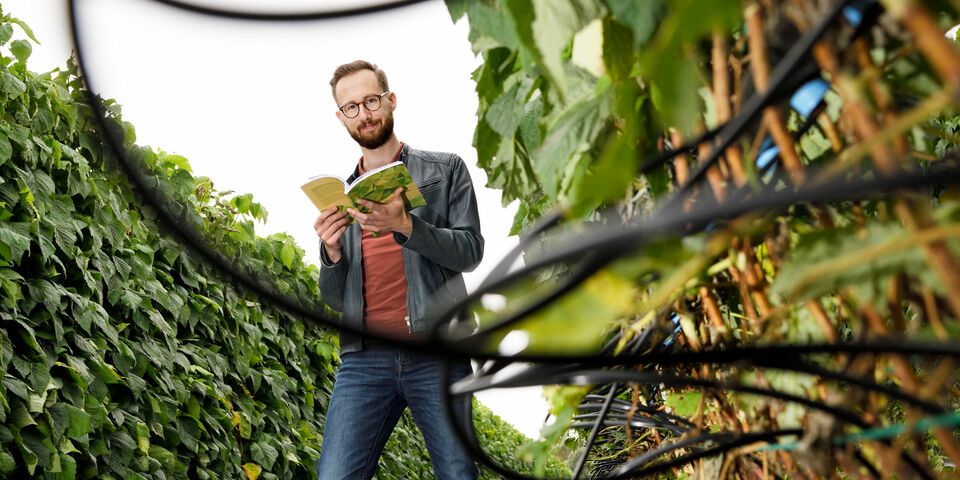Home Stretch | Precision control in agriculture
After marching victorious with the first Solar Team Eindhoven, Roy Cobbenhagen graduated cum laude. He was awarded this distinction for his study of the practical potential of solar cars. Four years later, he is adding a doctorate to his track record, but now in a very different field: control engineering for - in particular - precision agriculture. “Simply put, I looked at how robots can cooperate to improve our food supply.”
Less simply put, the subject of Roy Cobbenhagen's research is multi-agent systems. “In this context, an agent is an intelligent entity capable of measuring something or doing something in its physical environment,” he explains. “This may be a sensor or a robot or, in principle, a person.” Cobbenhagen studied the control engineering behind the systems controlling several of these agents. “What rules can you devise to regulate the cooperation between agents, all the while bearing in mind that you cannot accurately predict how the situation will unfold?”
The mechanical engineer focused his attention in particular on precision agriculture. If we are to continue to feed a growing population, arable yields worldwide must increase. This can be achieved by precisely tailoring the quantities of water, fertilizer and crop protection agents to the growth process of each crop. Drones can be used to monitor the condition of the crops; then automated agricultural vehicles can ensure that each plant is fed and watered at the right time. Fabulous, but this process does require a massive amount of sophisticated control engineering, which has to be in step with the existing biological models and the data gathered on the spot.
Irrigation
“Take irrigation, for example. Biologists and ecologists have already accumulated a great deal of knowledge, but it is not always in the mathematical form that those working in control engineering are used to,” says Cobbenhagen. “This is why I have now produced a regulator that, based on existing crop growth models, ensures precisely the right quantity of water at the right place at the right time.” This piece of control engineering can be widely used, he explains. “It works for potatoes in the Netherlands, but equally for all kinds of other crops elsewhere in the world where irrigation is needed.”
He maintains that precision agriculture represents an appealing challenge for the community of control engineers. “Included in my doctoral thesis is a vision of sorts in which I describe how control systems engineering can benefit precision agriculture. Not only is precision agriculture extremely relevant, it presents very interesting problems for control engineers. This is why I am keen to encourage my colleagues to explore this field.”
Outbreaks
Cobbenhagen started his doctoral work, it is worth noting, with a study of how you can prevent outbreaks. “Think of insect plagues, but also forest fires and infectious diseases,” he explains. Here too, he applied the theory of multi-agent systems. “The question is how best to distribute insecticides, firefighters or mobile medical units across a region in order to stop an impending outbreak in its tracks.”
In short, it depends - naturally - on the details of the situation. “In view of the current corona pandemic, this is perhaps the most topical chapter of my thesis,” Cobbenhagen admits. “But you must remember that where a situation has reached pandemic proportions, my models no longer apply. At most they may have been valuable directly after the emergence of coronavirus in Wuhan, but I wouldn't want to make any claims about that.”
Lightyear
Having gained his doctorate, incidentally, Cobbenhagen will return to his old love: the solar car. He will be joining car manufacturer Lightyear, a spin-off from Solar Team Eindhoven. “The plan is that I will set up a research department where work will be done on new technology for the successors of Lightyear One.”


Discussion